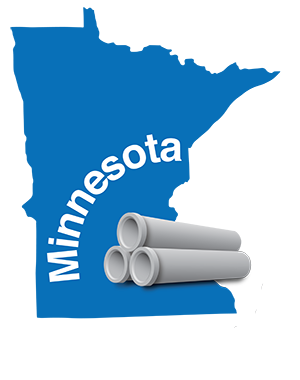
What is Sustainability & Resiliency?
Government agencies and business are increasingly considering the environmental benefits of infrastructure products, including storm sewer and culvert pipe materials.
What is sustainability and resiliency?
- The World Commission on Environment and Development defines sustainable development as, “development that meets the needs of the present without compromising the ability of future generations to meet their own needs”
- Resiliency is the ability of infrastructure systems (including their interconnected ecosystems and social systems) to absorb disturbance and still retain their basic function and structural capacity.
When designing infrastructure, civil engineers should specify materials and products that are the safest and highest quality, perform as intended for the design life of the project, and have the best overall value.
Sustainable, resilient concrete pipe satisfies these criteria.
Concrete Pipe Sustainability Benefits
- Recyclable – concrete pipe utilizes industrial byproducts and recycled materials that reduce virgin material consumption.
- Conserves energy – Concrete pipe is proven to last longer than other pipe materials. This longer service life means reduced overall energy consumption
- Environmentally friendly – From mining aggregates to quarry mitigation, concrete pipe has several environmental benefits
A Cautionary Note: Comparing Sustainability Data
Civil engineers and government agency sustainability coordinators should exercise caution when comparing greenhouse gas reduction data from different pipe materials.
There are numerous studies and variables to consider before declaring one pipe material “more sustainable” than the others. Getting a true apples-to-apples comparison can be challenging.


